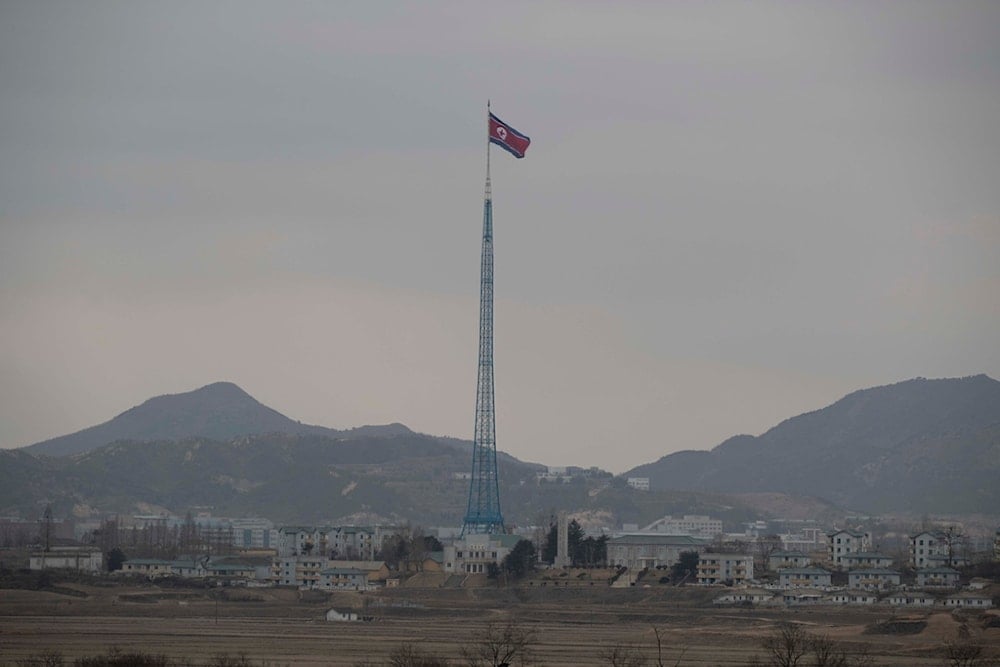DPRK condemns Germany's entry into US-led UN command
The DPRK Foreign Ministry labeled the UN Command a "body of aggression" and warned that Germany's involvement would heighten military and political tensions.
-

A DPRK flag flutters in DPRK's village Gijungdong, as seen from a South Korea's observation post inside the demilitarized zone in Paju, South Korea, during a media tour, March 3, 2023 (AP)
The DPRK has criticized Germany's recent participation in the US-led UN Command, asserting that it will exacerbate the crisis on the Korean peninsula and the broader region.
This comes after German Defense Minister Boris Pistorius announced on Friday Germany's role in patrolling South Korea's borders during an entry ceremony at the main US military base in South Korea.
"Germany's entry into the UN Command will inevitably aggravate the military and political situation on the Korean peninsula and the rest of the region," the ministry said in a statement shared by state news agency KCNA.
Read more: DPRK transfers 250 missile launchers to S. Korean border
"Germany will be held wholly responsible for all the consequences arising therefrom," the DPRK statement added.
The DPRK Foreign Ministry further labeled the UN Command a "body of aggression" and warned that Germany's involvement would heighten military and political tensions.
The ministry declared that Germany would be held responsible for any resulting consequences and stressed the DPRK's commitment to strengthening its independent defense capabilities.
Pinag-usapan nina Philippine Navy Flag-Officer in Command Vice Admiral Toribio Adaci Jr. at German Defense Minister Boris Pistorius ang pinalawak na kooperasyong pandepensa sa pagbisita ng huli sa Philippine Navy Headquarters noong araw ng Linggo.
— Radyo Pilipinas (@radyopilipinas1) August 5, 2024
| ulat ni Leo Sarne#RP1News… pic.twitter.com/bwGHATN2FW
Read more: Kim Jong Un calls South Korea an 'unchangeable enemy'
The UN Command (UNC) was established on July 7, 1950, in response to the outbreak of the Korean War.
The UNC was responsible for coordinating the military efforts of UN member states that came to the aid of South Korea, thus serving as a vehicle for US aggression under the guise of a UN mission.
Twenty-two countries contributed either combat forces or medical units to support South Korea during the war, with the US providing the majority of the military personnel and resources.

 2 Min Read
2 Min Read








